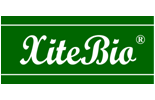Inoculants are the common name for commercial biotech products which contain bacteria that help provide agricultural crops with nitrogen (N) and phosphorus (P). Those of us that sell inoculants are quick to ask farmers to use them every year. But how do inoculants affect the rhizosphere (root zone) over time? In this edition of Growing Possibilities, we’ll discuss the long-term effects of inoculants on your soil.
Soil health or soil fertility refers to the ability of a soil to provide a plant with adequate essential nutrients that it needs for optimal growth and yield. Commercial inoculants often focus on macronutrients, specifically N and P (1,2). A lot of N and P exist in forms that cannot be readily taken up by plants. Inoculants solubilize P and/or fix the atmospheric N and make these substances available to the plants in a form they can process. However, the populations of rhizobia in the soil can die out over the winter or simply become spread out and lose the high bacterial concentrations found in many of today’s commercial inoculants. This is why we tell growers to inoculate every year. This gives the soil a rejuvenating burst of beneficial microbes. It has been found that yearly application of inoculants can improve crop yield.(3)
Inoculants can also affect the natural bacteria that live in the soil. Inoculants may influence a gradual increase in specific microbial decomposers. These specific decomposers break down complex sources of organic matter that can provide more nutrients to the soil to the benefit of rhizospheric bacteria and plants (4). By adding commercial inoculants to the soil, you can potentially increase the number of native healthy bacteria living in the soil. Inoculants can also gradually affect the rhizospheric community by increasing the growth of potentially beneficial bacteria and decreasing the potentially harmful species, which helps protect the plants from diseases (5).
The ability of rhizobia to either fix N or solubilize P comes from the fact that they possess specific genes that enable them to carry out these processes, whereas most of the other soil organisms do not have these beneficial genes. However, it has been documented that rhizobia are capable of giving those beneficial genes to the native soil microflora (6). This occurs through a process called “horizontal gene transfer”. This means that there is a possibility of native soil bacteria obtaining the potential to form nodules on the roots of legume plants through exposure to inoculants. Although, we would not recommend counting on this happening and even if it does, the native microflora may not be as effective of an N-fixer as a commercial inoculant (7).
It is important to note that the long-term benefits of inoculants are substantially hindered by certain farming practices, such as excessive N fertilizer use (8). Too much chemical fertilizer is detrimental to the microbiota of the soil, so it is important to strike a balance between what is needed for yield and what is best for the long-term health of the soil.
Inoculants do more than just one job. The right inoculant brings multiple long-term benefits to the soil to which it is applied. Our inoculants all use our AGPT formulation that has been proven under testing to invigorate the native soil microflora. When choosing an inoculant, it is important to consider all the factors at play and ask your retailer: What does this product do for my soil? Not just: what does it do for my crop? Good soil is the path to sustainable agriculture with healthier plants with better yields.
Resources
1. https://www.sciencedirect.com/science/article/pii/B9780444627339000046
2. https://link.springer.com/chapter/10.1007/978-90-481-2716-0_16
3. https://www.frontiersin.org/articles/10.3389/fmicb.2021.693535/full
4. https://www.frontiersin.org/articles/10.3389/fmicb.2021.693535/full
5. https://www.mdpi.com/2077-0472/11/5/389/htm
6. https://www.ncbi.nlm.nih.gov/pmc/articles/PMC6071183/pdf/genes-09-00321.pdf
7. https://www.ncbi.nlm.nih.gov/pmc/articles/PMC6071183/pdf/genes-09-00321.pdf
8. https://www.mdpi.com/2077-0472/11/5/389/htm


